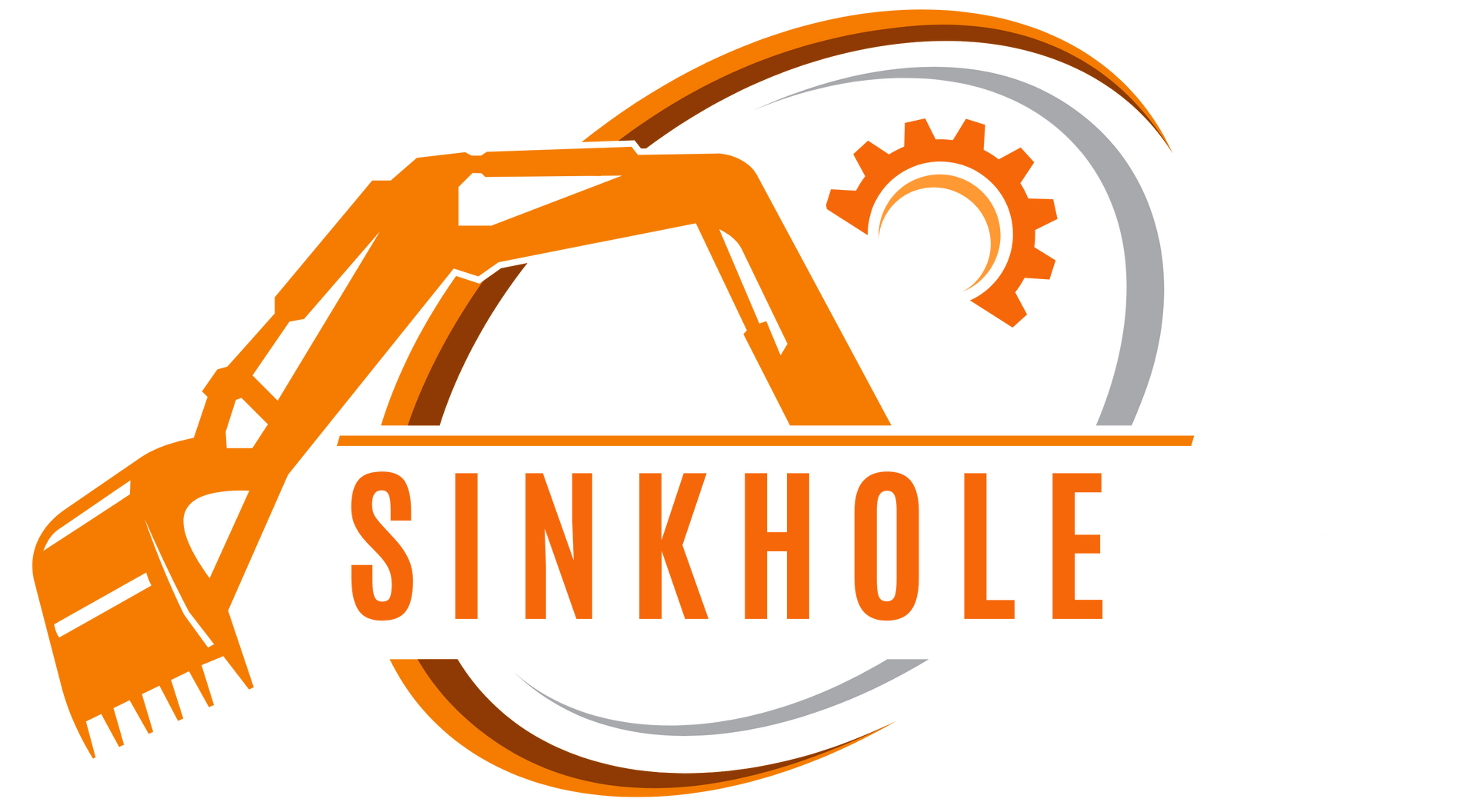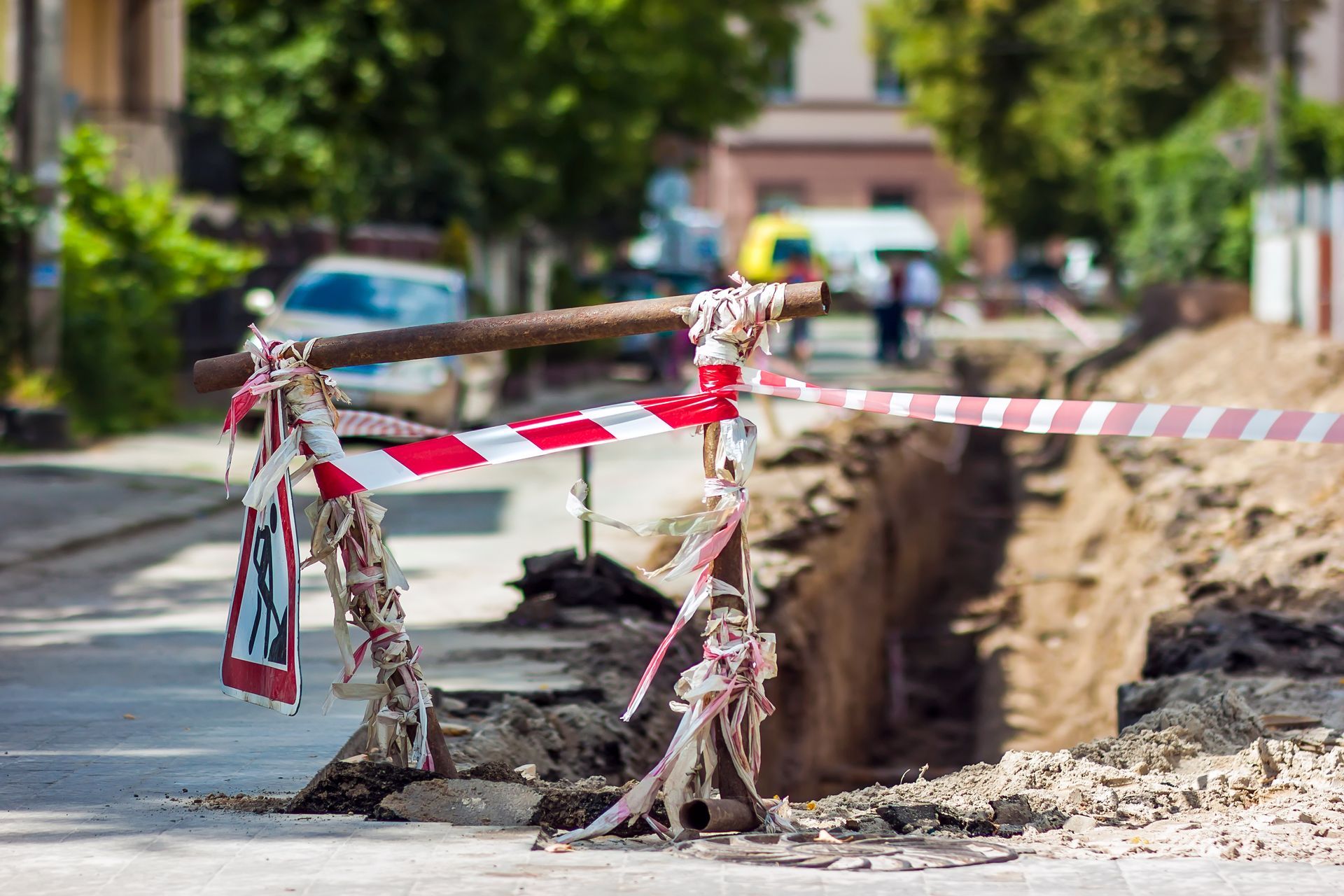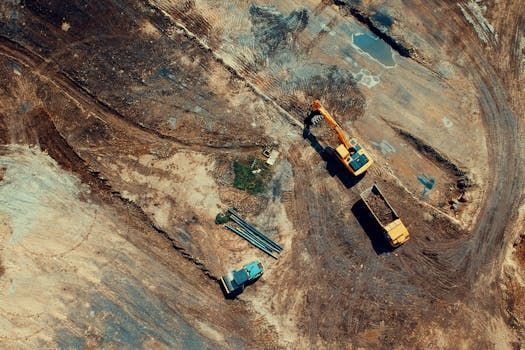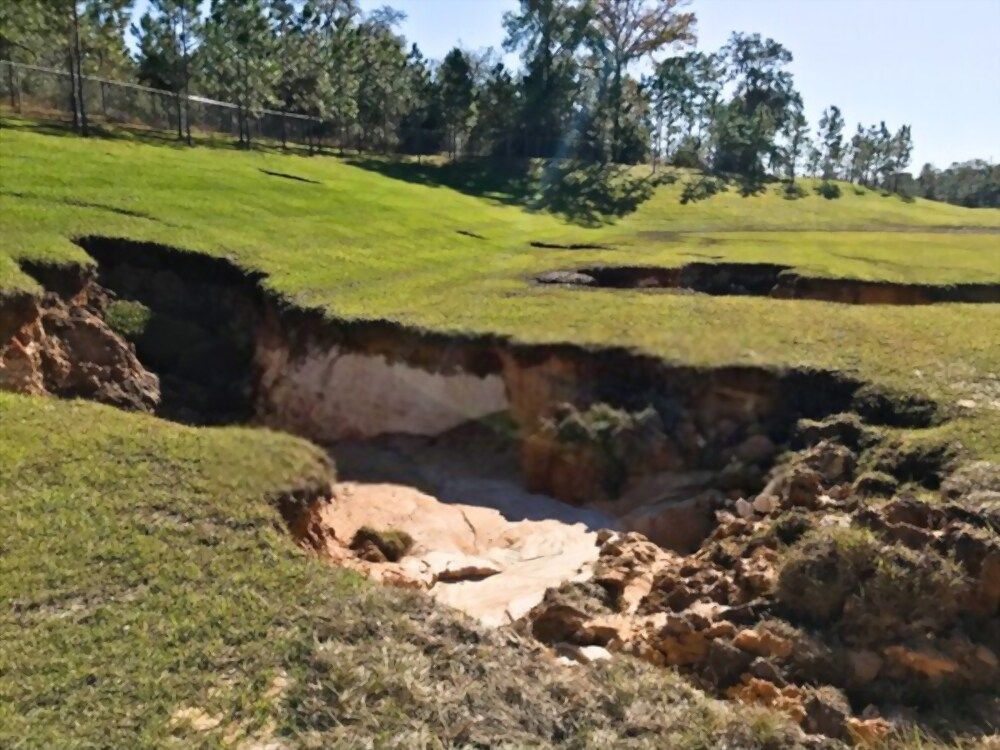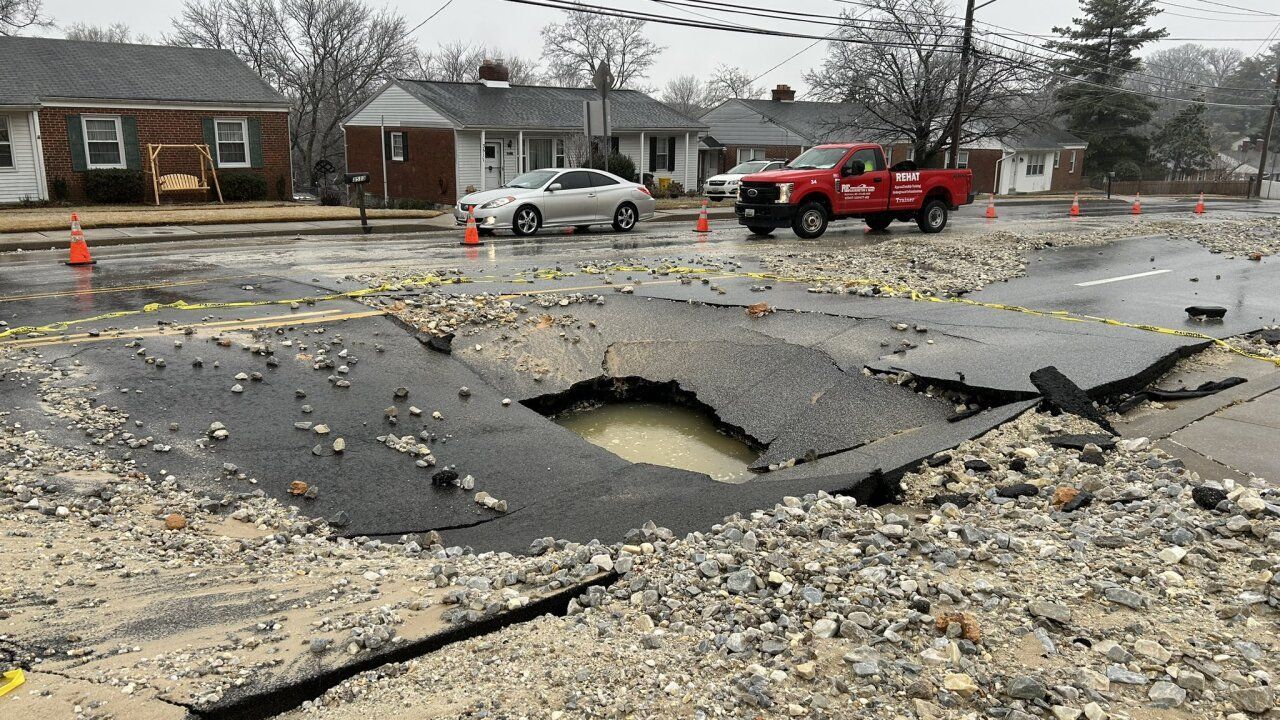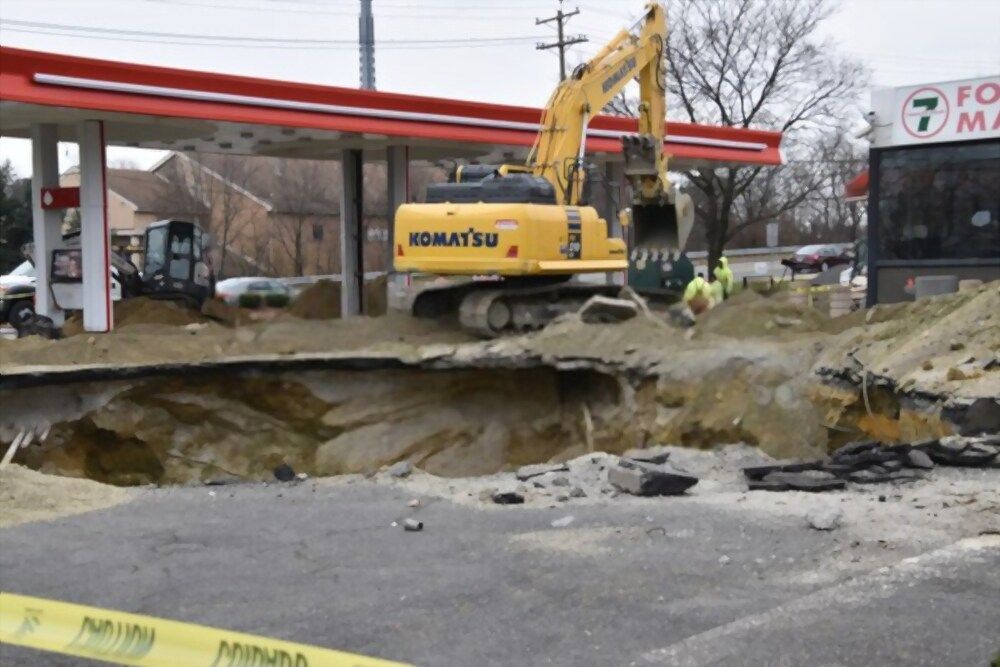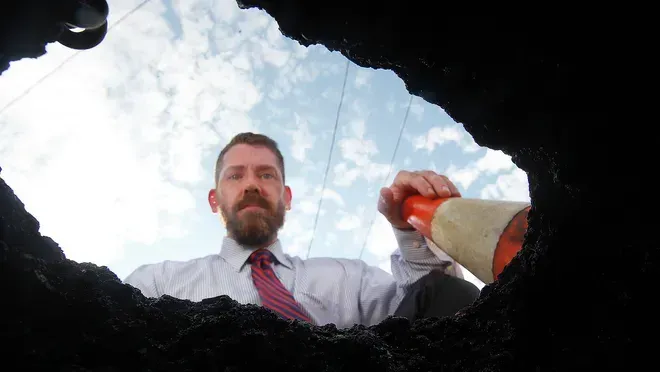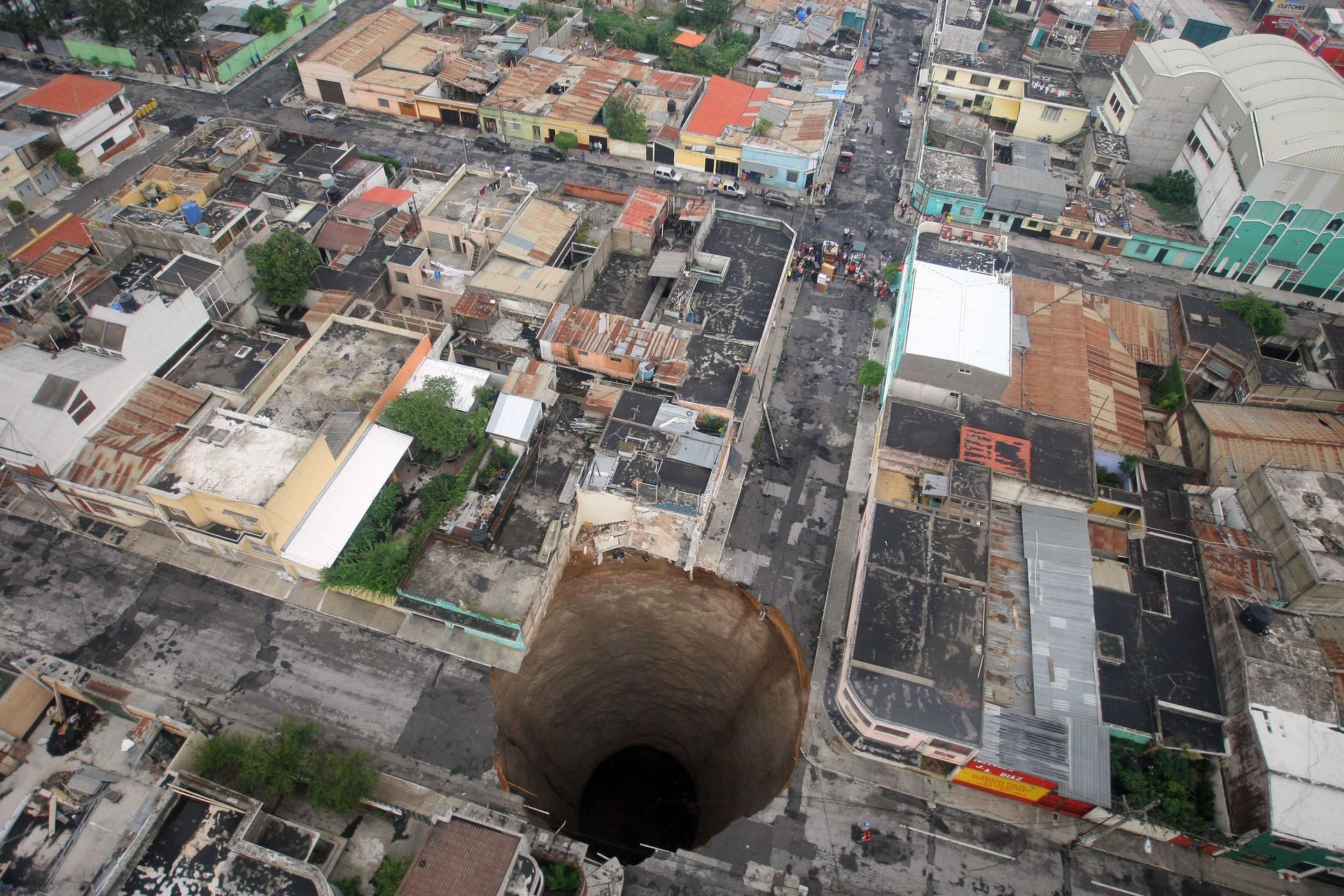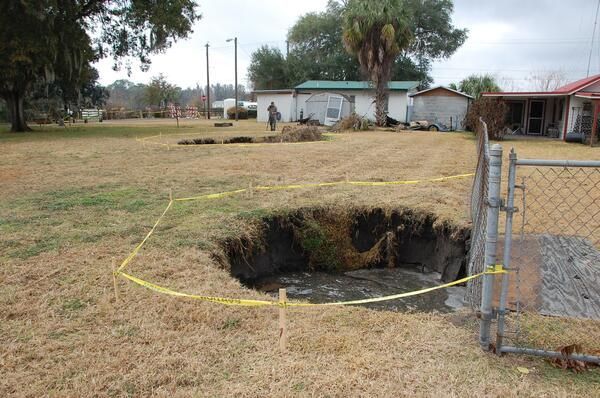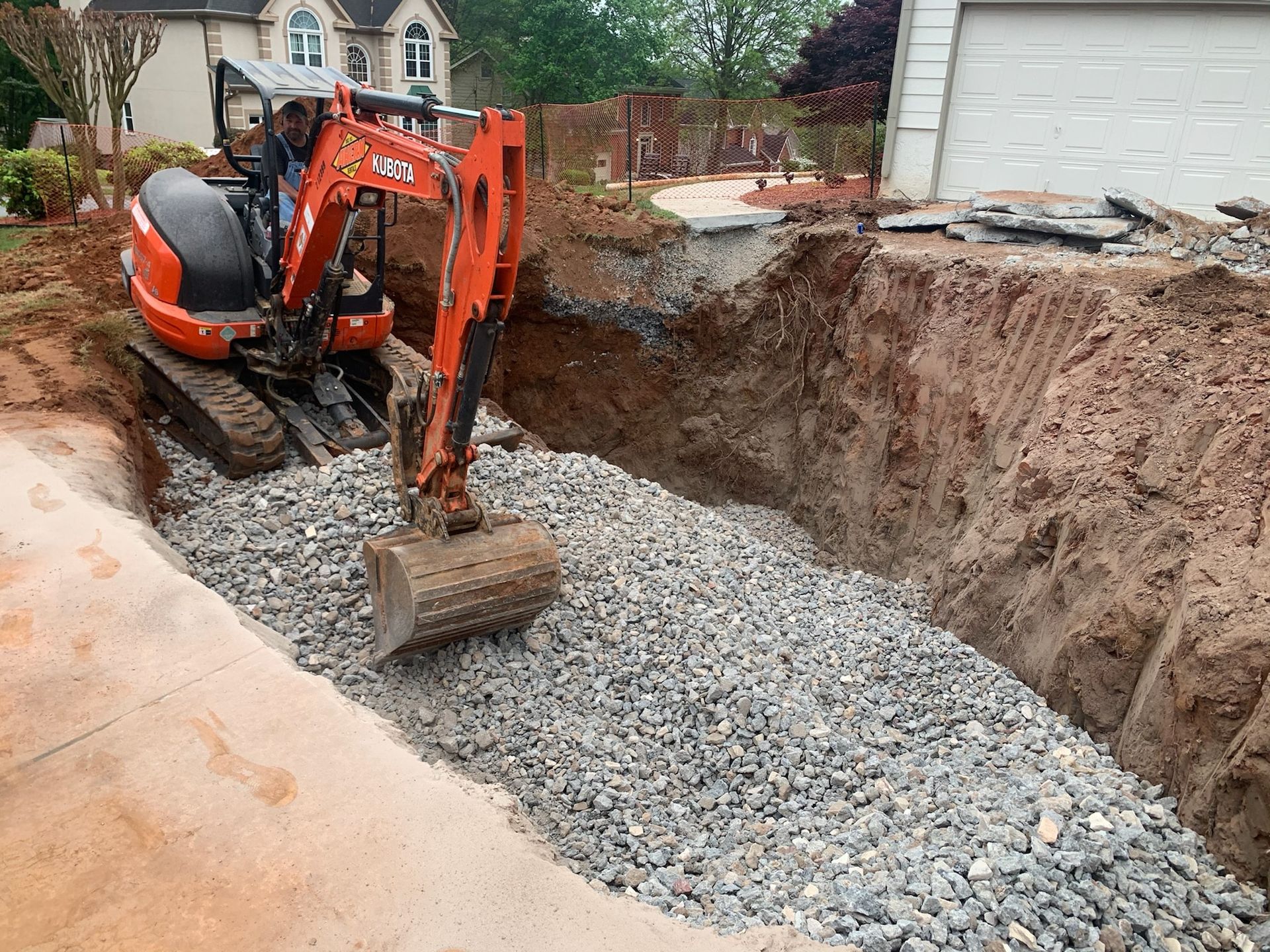Why Do Sinkholes Form on Your Property?
TL;DR;
Sinkholes often form on your property due to the erosion or dissolution of underground rock—commonly limestone—caused by water movement or poor drainage. These voids collapse when the ground above becomes unstable, and they can also be triggered by human activities like construction, leaking pipes, or groundwater pumping.
What Is a Sinkhole? (Definition and Basics)
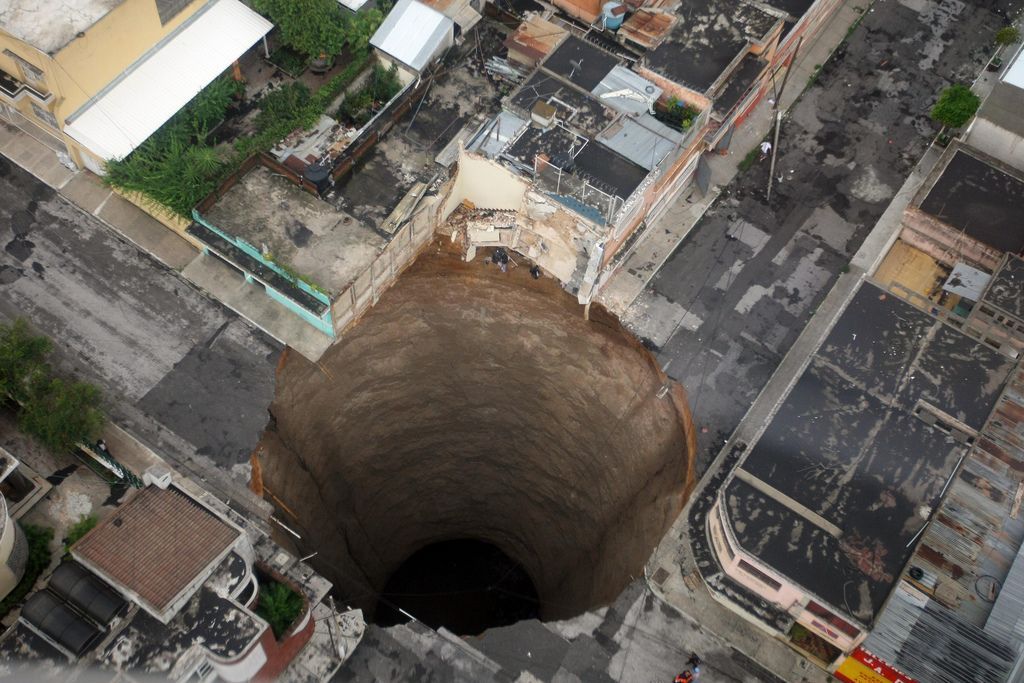
A sinkhole is a depression or hole in the ground caused by the collapse of a surface layer into a void or cavity beneath it.
Most sinkholes occur in what's known as karst terrain—regions where the bedrock (usually limestone, gypsum, or salt) dissolves over time due to water erosion. This creates underground voids and unstable ground.
Key terms to understand:
- Sinkhole meaning: A hole or depression in the ground caused by collapse.
- Ground subsidence: The gradual caving in or sinking of an area of land.
- Karst formations: Terrain formed from the dissolution of soluble rocks.
- Collapse features: Surface depressions or cave-ins resulting from underground voids.
- Dissolution of bedrock: The chemical process of water dissolving soluble rock layers.
Natural vs. Man-Made Causes of Sinkholes on Your Property
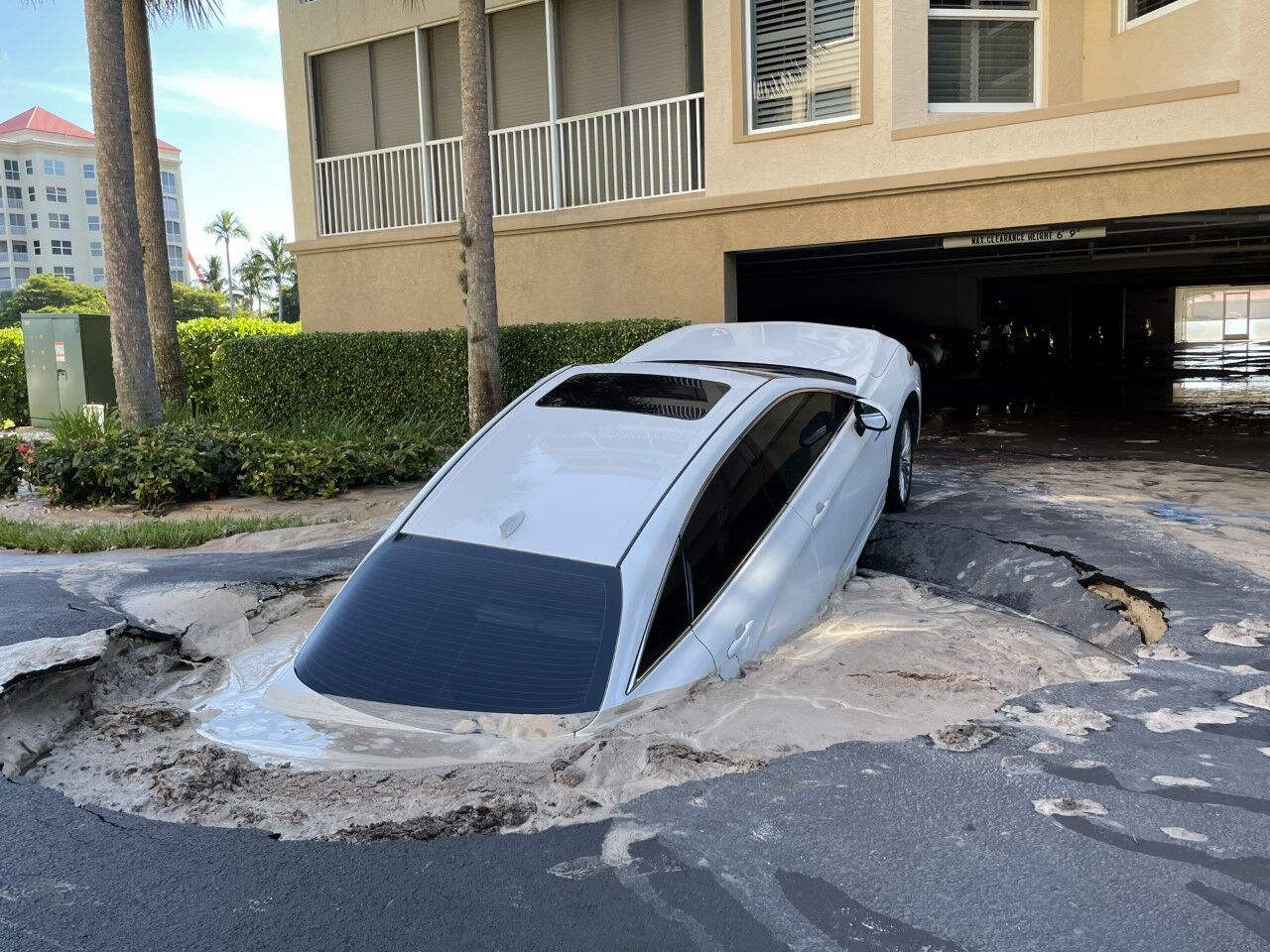
Natural Causes
Sinkholes can naturally form from:
- Dissolution of Limestone or Gypsum: Water seeps through soil, gradually dissolving the rock.
- Fluctuating Water Tables: Drought lowers the water level supporting the ground above, and heavy rain can then trigger a collapse.
- Climate Impacts: Sudden weather changes, such as extended dry periods followed by storms, stress the ground.
Man-Made (Human-Induced) Causes
Activities by people often make sinkholes worse or trigger them prematurely:
- Broken Sewer or Water Lines: Leaks erode the soil and speed up sinkhole formation.
- Over-Pumping Groundwater: Removes underground support by draining aquifers.
- Poor Soil Compaction: Especially common in new developments.
- Construction, Drilling, or Excavation: Alters the ground's load and natural drainage patterns.
What Causes Sinkholes in Yards?
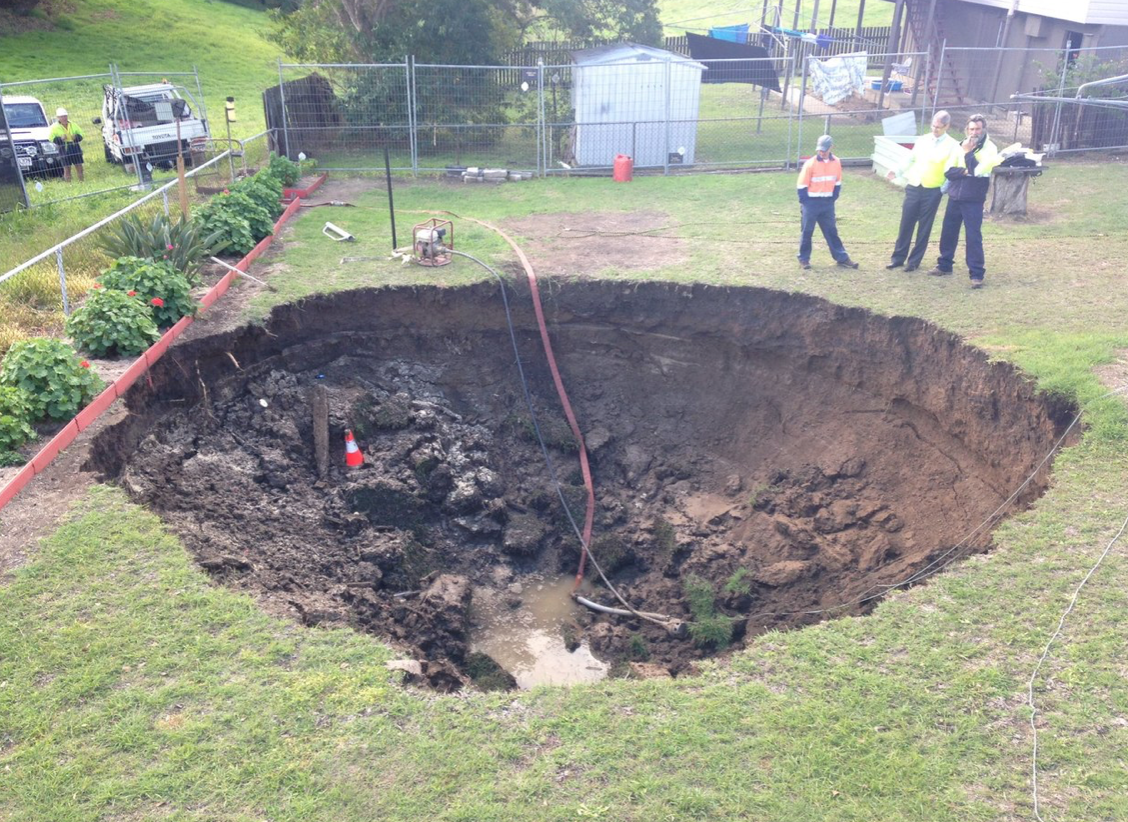
Yard sinkholes are often surface expressions of deeper issues. Common causes include:
- Leaking irrigation systems or drainage pipes
- Heavy rainfall saturating soil over dissolving rock
- Old tree stumps rotting underground
- Improper grading or drainage design
These might start as soft spots in your yard and gradually evolve into deeper holes if left untreated.
Ever noticed a soft spot in your yard?
call us today To get a free Inspection!
What Are the Types of Sinkholes?
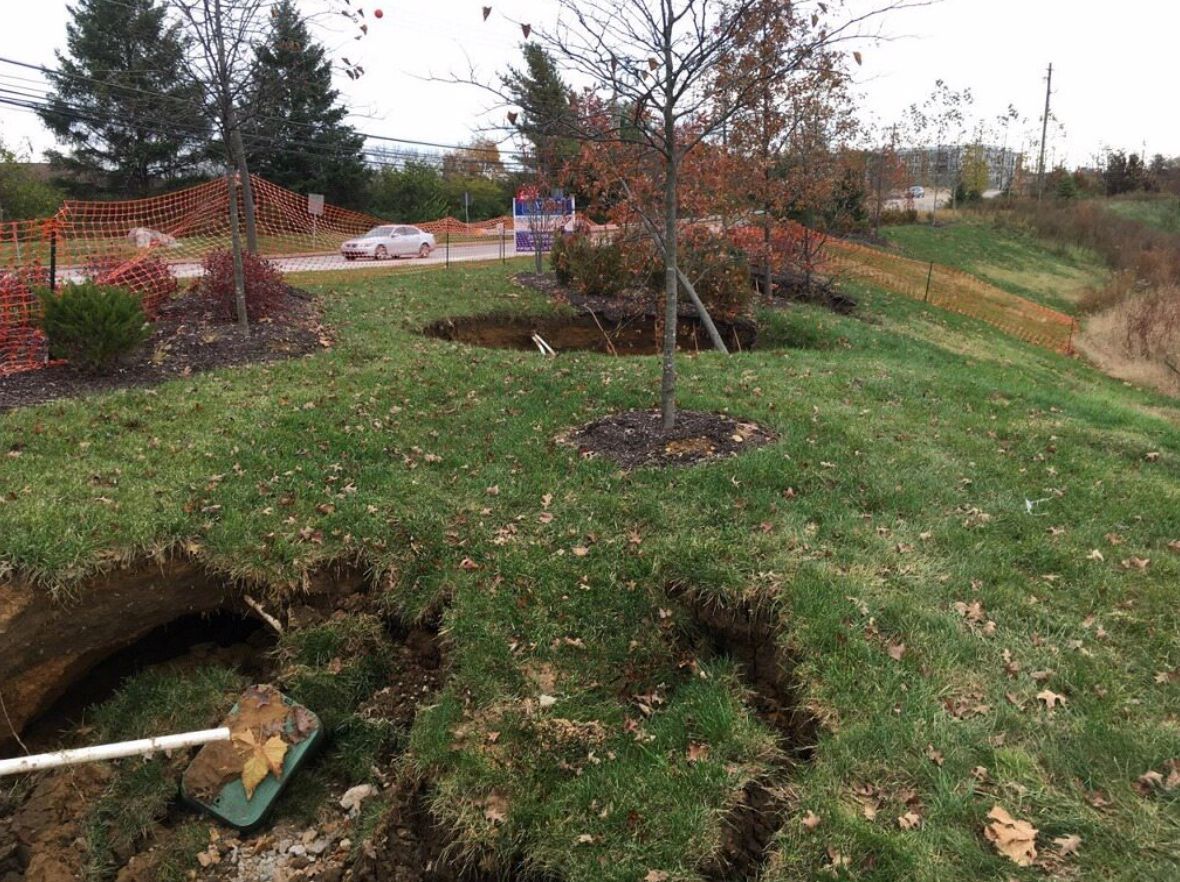
Dissolution Sinkholes
- Start with water slowly dissolving rock at the surface.
- Appear gradually and typically in flatter terrain.
- May go unnoticed for years until a depression becomes visible.
Cover-Subsidence Sinkholes
- Occur in areas with sand or loose soil over bedrock.
- Soil slowly filters into cracks, creating small dips.
- Develop over time and may cause subtle surface undulations.
Cover-Collapse Sinkholes
- The most dangerous type.
- Happen in clay-heavy areas where the soil forms a roof over a void.
- When the roof collapses, the ground suddenly caves in.
Visual indicators of each type:
- Gradual dips: Often dissolution or subsidence.
- Sudden holes: Likely a cover-collapse.
Early Signs of Sinkhole Activity on Your Property
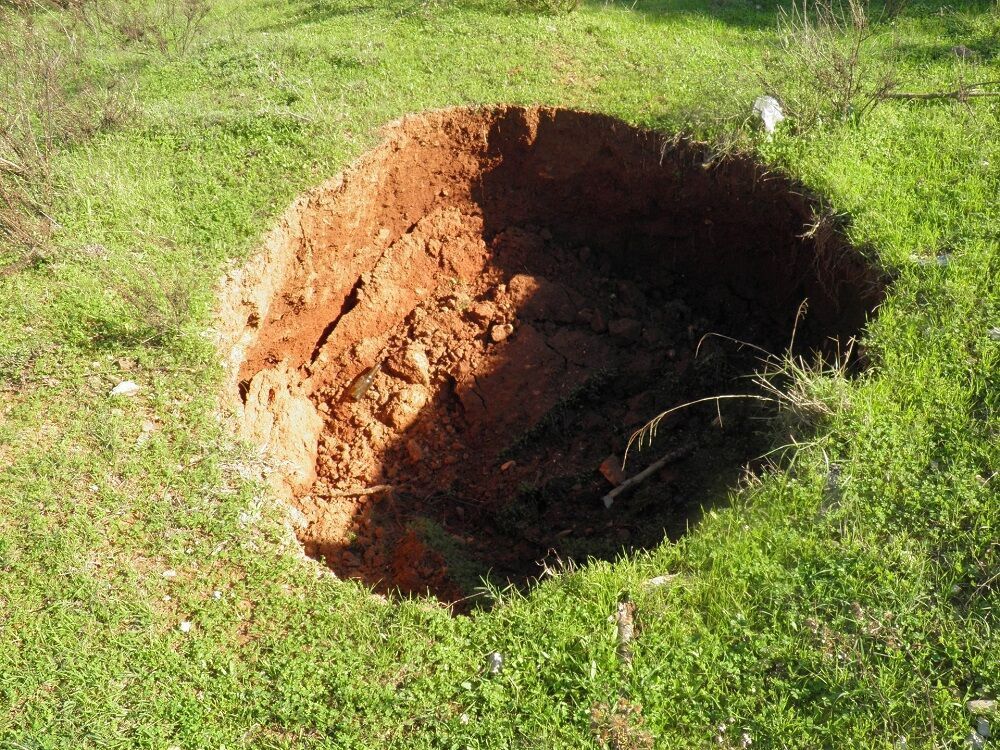
Recognizing sinkhole warning signs early can help you act before disaster strikes:
- Depressions in your lawn
- Cracks in foundation, driveway, or sidewalks
- Doors and windows that suddenly stick
- Slanted trees or fence posts
- Soft, spongy ground even when dry
- Pooling water that wasn’t there before
These symptoms may seem minor but often hint at underground voids.
How to Check for a Sinkhole Under Your House
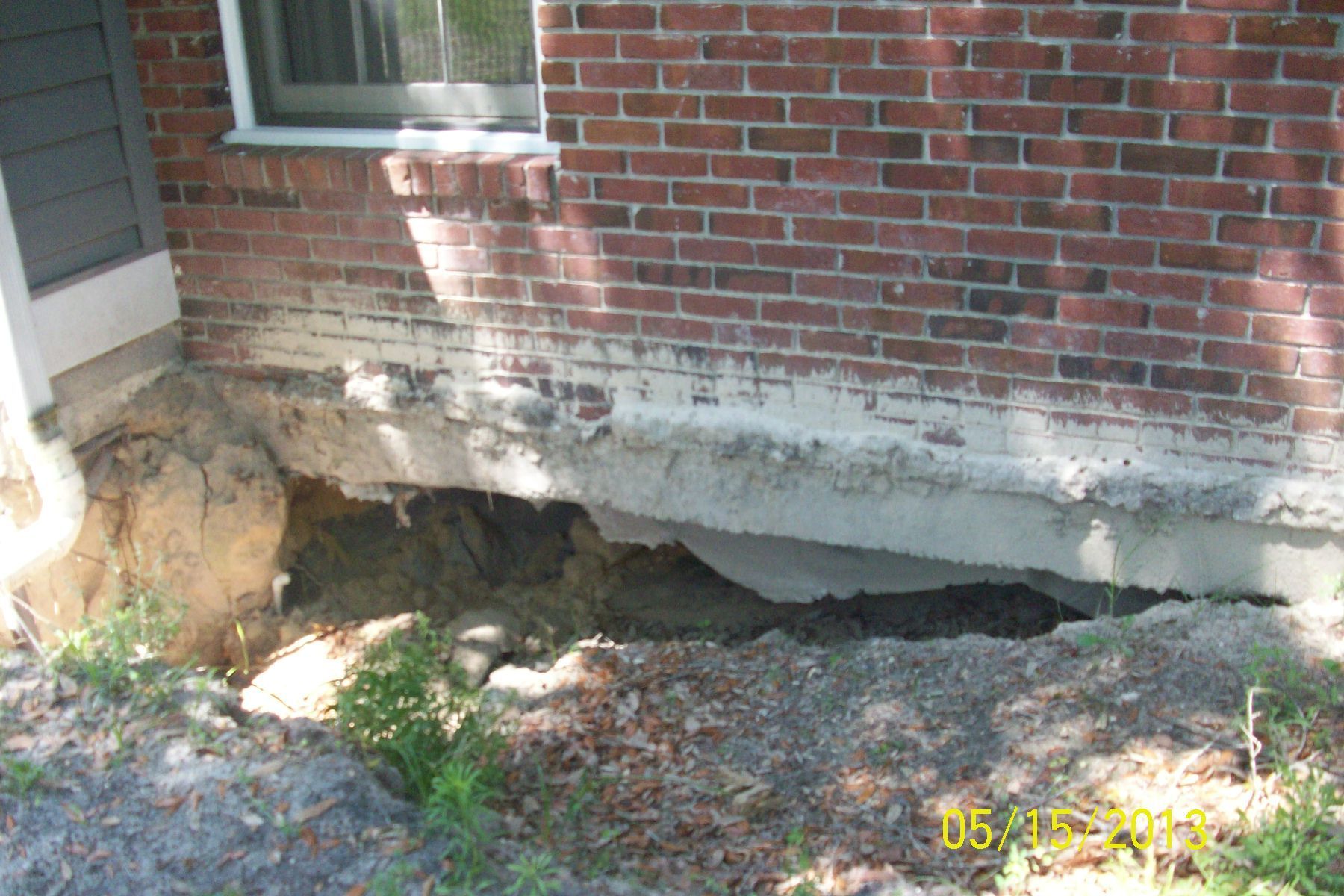
Not sure who to call for sinkhole repair? If you suspect a sinkhole, don’t wait. Here's how to evaluate the risk:
- Review geological maps to determine if your area has karst terrain.
- Hire a geotechnical engineer for professional testing and risk assessment.
- Conduct ground-penetrating radar (GPR) surveys to locate underground voids.
- Use soil borings or electrical resistivity testing for in-depth analysis.
Professional sinkhole inspection & detection services—like those offered by Sinkhole Repair ATL—can help assess danger levels and determine whether repairs are needed.
Ever noticed a soft spot in your yard?
call us today To get a free Inspection!
Ways to Reduce Sinkhole Risk on Residential Property
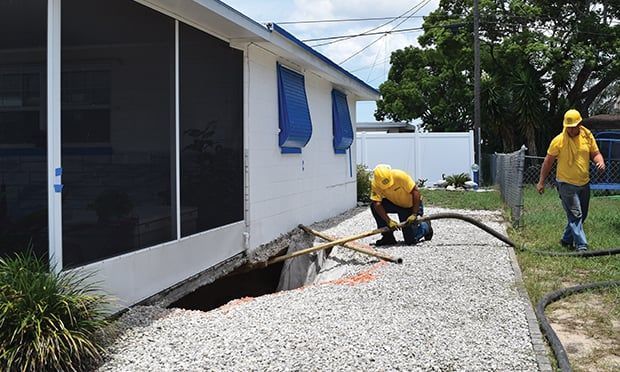
Proactive prevention measures can protect your home:
- Ensure proper drainage: Use downspouts, French drains, and sloped grading.
- Avoid overwatering your yard: It weakens soil and can accelerate erosion.
- Use proper soil compaction techniques when building or landscaping.
- Inspect and maintain water and sewer lines to catch leaks early.
- Avoid planting trees with invasive roots near foundations.
These steps limit water intrusion and reduce the likelihood of ground destabilization.
What to Do About a Sinkhole on Your Property
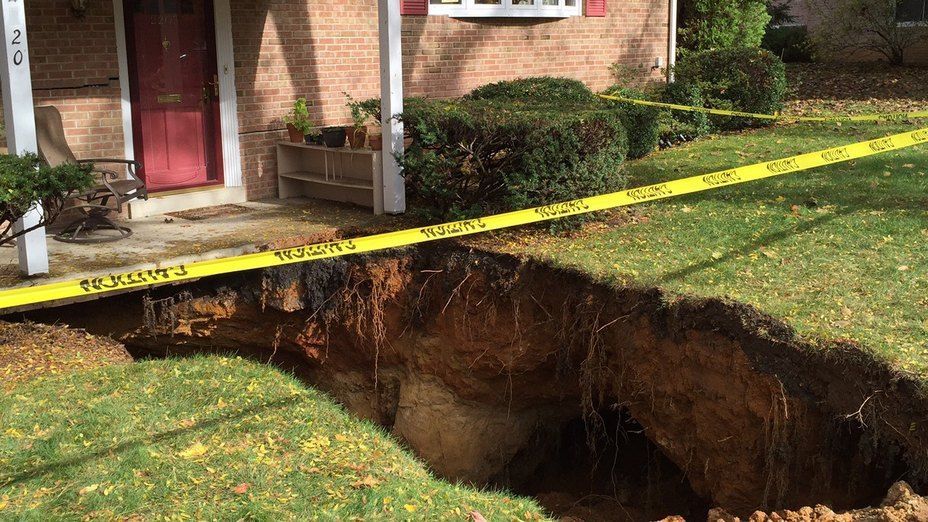
If you suspect or discover a sinkhole:
- Secure the Area
- Keep people, pets, and vehicles away.
- Avoid Heavy Equipment or Foot Traffic
- Pressure can cause further collapse.
- Take Photos and Document the Area
- Note the size, shape, and progression.
- Call Professionals Immediately
- Contact Sinkhole Repair ATL for expert
sinkhole repair services or consult your local government.
- Check with Your Insurance
- Determine coverage and next steps for filing a claim.
Swift action prevents further damage and ensures safety.
Is Sinkhole Damage Covered by Insurance?
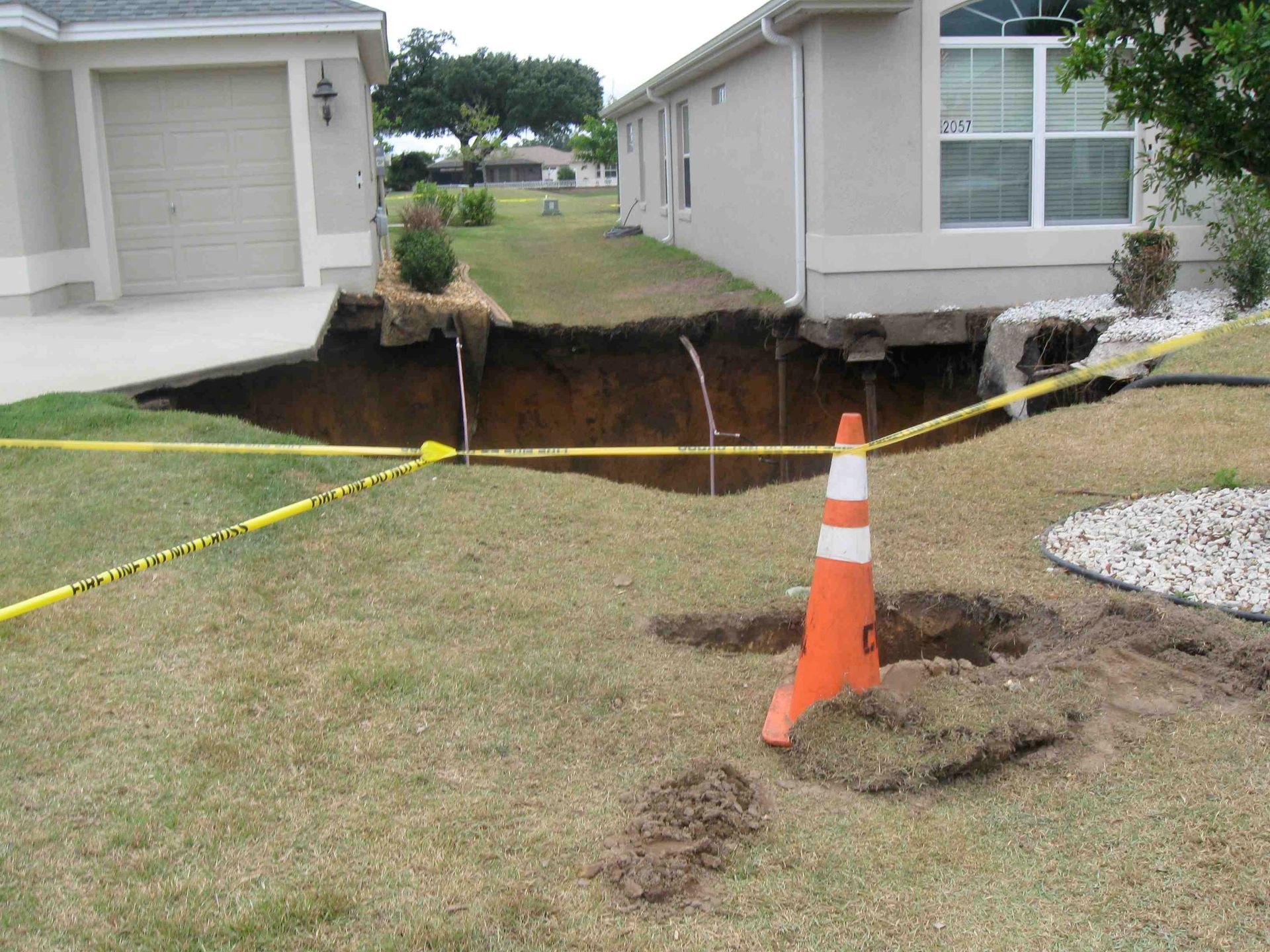
Homeowners insurance may or may not cover sinkholes—it depends on your policy and state.
- Standard policies typically exclude sinkhole damage.
- Sinkhole endorsements or riders may be available as add-ons.
- Some states (like Florida) require insurers to offer sinkhole coverage.
Filing a claim involves:
- Documenting the damage thoroughly
- Hiring a certified engineer or inspector
- Working with both insurance adjusters and repair specialists like
Sinkhole Repair ATL
Ever noticed a soft spot in your yard?
call us today To get a free Inspection!
Where to Get Help or More Information
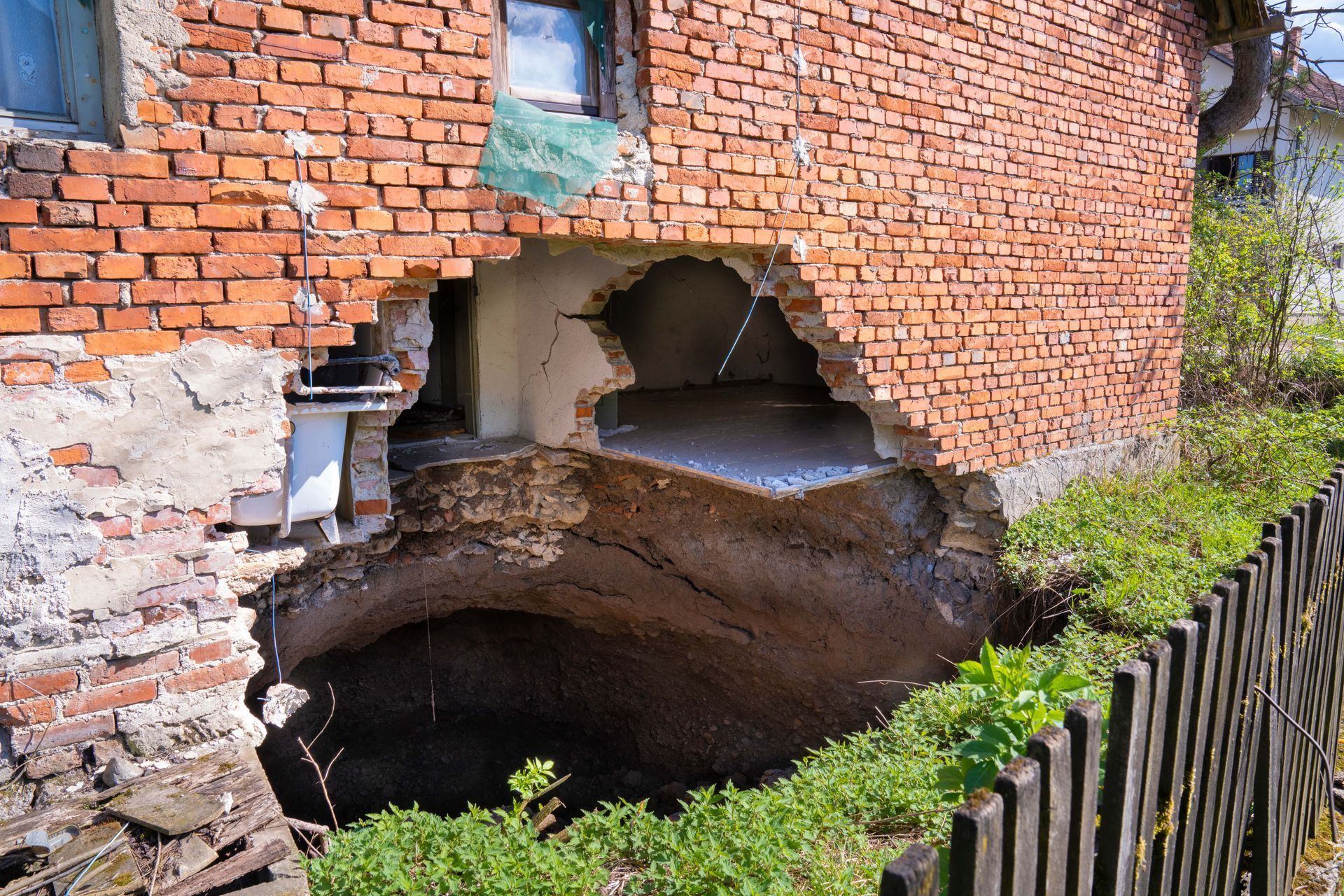
To learn more about protecting your property or to schedule an inspection:
- Georgia Department of Natural Resources: Offers geological data
- U.S. Geological Survey (USGS): Research and sinkhole mapping tools
- Local County Governments: May provide inspection guidelines
Or contact Sinkhole Repair ATL—your trusted experts in detection, repair, and prevention.
We offer:
- Free inspections
- Emergency response
- Full soil stabilization and void filling services
Understanding Sinkhole Formation: Stay Alert, Stay Safe
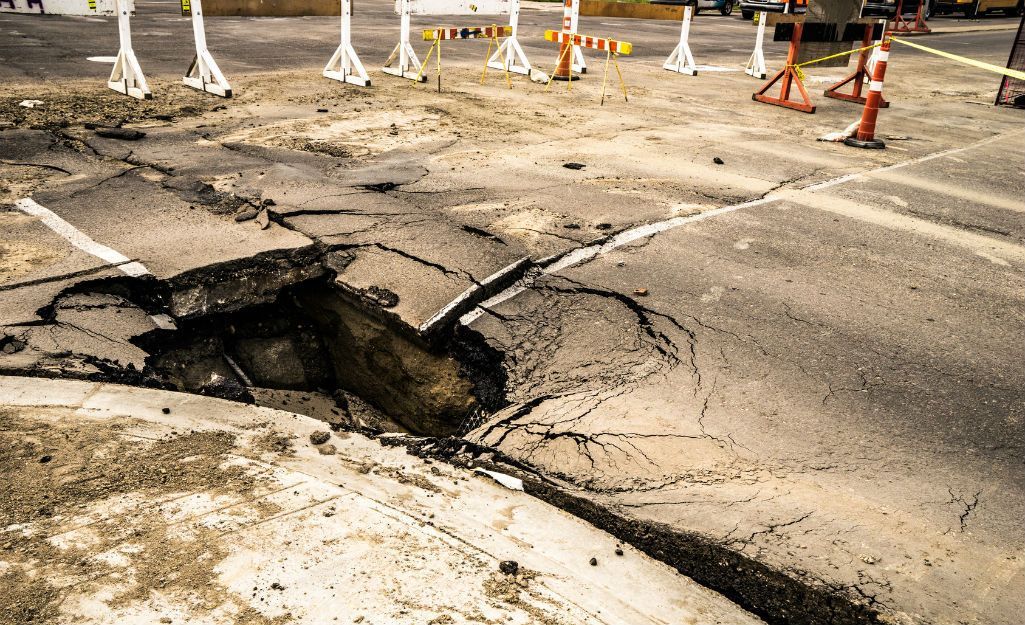
Sinkholes form due to a mix of natural processes and human activities—from underground water erosion to infrastructure leaks. Left unchecked, they can damage foundations, threaten safety, and reduce property value.
Protecting your property means:
- Learning the warning signs
- Getting professional help fast
- Taking preventive measures seriously
At Sinkhole Repair ATL, we’ve seen firsthand how devastating sinkholes can be—and how quickly the right intervention can stop them in their tracks. Don’t ignore the signs. If you think your property might be at risk, reach out today.
